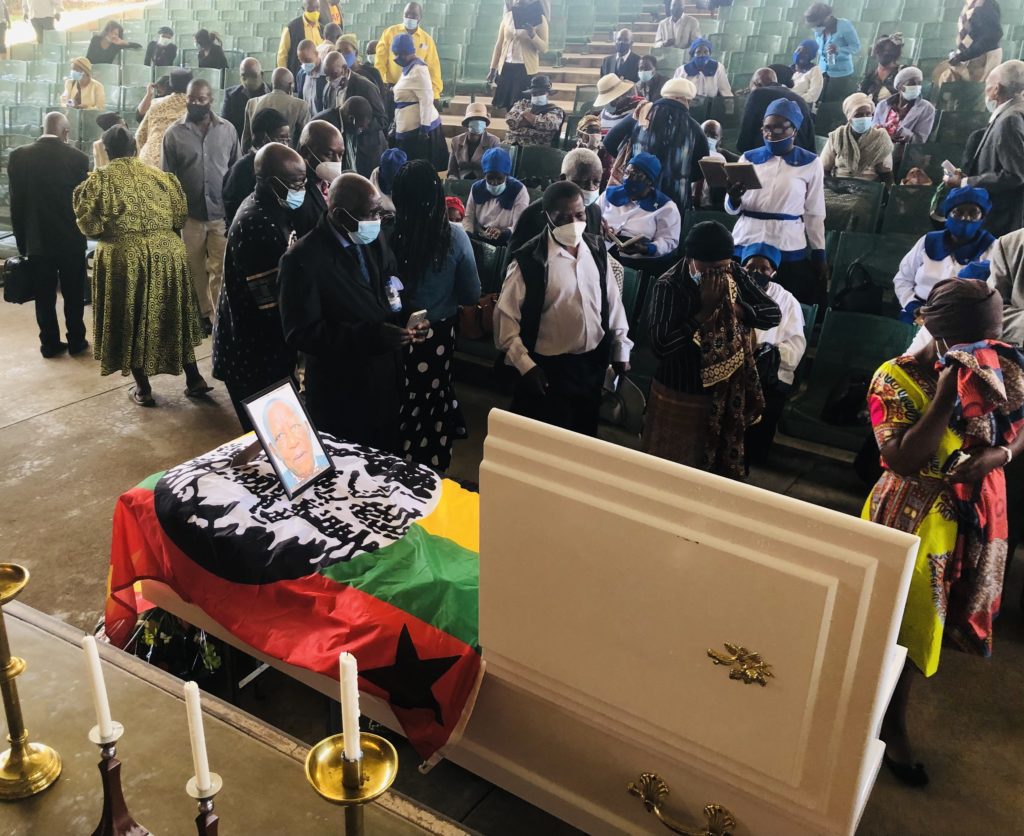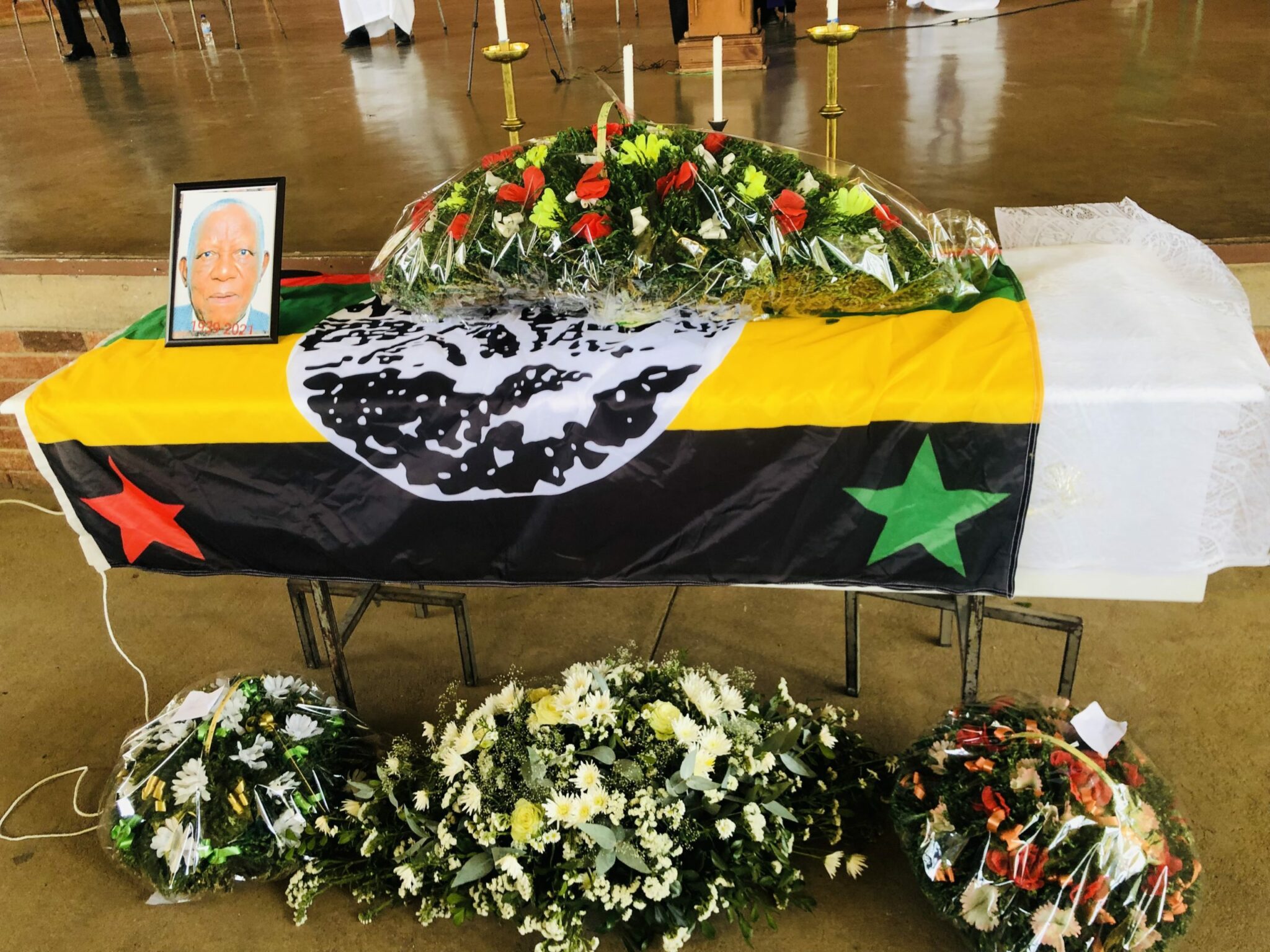The late ZAPU stalwart Johnson Mkandla who died last week aged 82 was laid to rest at the Lady Stanley Cemetery in Bulawayo Tuesday.
Speaking during a funeral service held at the Amphitheatre, mourners said his contributions, professionally and socially, qualified him to be classified as a national hero.
They also described the former regional magistrate as a wise, quiet, humble but hardworking man whose good works preceded his reputation.

Minister of State for Bulawayo Provincial Affairs and Devolution, Judith Ncube, said she knew Mkandla as one individual who provided expert guidance and counsel.
“Mkandla’s advice will stand the test of the time. I was in the Bulawayo council executive in the early 1980s that was guided by Mkandla. Those of us who were led by him really appreciate his counsel. We also thank him for the role he played in Zimbabwe. He fought a good fight during and after independence he has done his part. I can say he has done the works that God has assigned him to do,” she said.
Ncube said the country and the mkandla family had lost a hard worker.
“There are few who can work hard, deliver and be quiet as most people are talkative while their works are misdirected. Mkandla was one of those who had a rare gift of advising constructively,” noted the provincial minister.
ZAPU Deputy Chairperson, National Council of Elders, Percy Bhebhe pointed out Mkandla fought relentlessly for the country but did not receive recognition from the government.
“He was detained a number of times before independence and when he was in jail that’s when he studied law. He then became a lawyer then magistrate and continued working for this country. However, he didn’t receive anything or appreciation for his work. I don’t know if others in his position have received recognition,” he reflected.
Bhebhe highlighted that Mkandla served as a provincial NPRC member who was committed to finding a solution to the Gukurahundi atrocities and also questioned why the government was excluding ZAPU from such initiatives.
“Mkandla was part of our elders committee due to his counsel abilities. Now, he was involved with the NPRC to solve Gukurahundi but it is surprising that in all these initiatives announced by the government, ZAPU is always excluded yet the party was the major victim when the atrocities occurred. We hear of the Matabeleland Collective, so and so but ZAPU is not part of that narrative to solve the Gukurahundi matter,’ he lamented.
Luke Mkandla, the deceased’s brother, added the former magistrate was a unifier who even successfully managed to lead their Mkandla Cultural Association.
“He was so close to people, you would think they were from the same family. When Mkandla left for England where he spent 15 years, during that time the organisation died but when he came back he revived it to our surprise. As his name – Mthenjwa, we relied on him. We were due for another meeting and it’s sad that he has gone before he could counsel us further,” he said.
Mkandla’s son Skhumbuzo paid homage to the liberation struggle veterans who, like his father, fought to liberate the country before and after independence.
“We say to our elderly, use us the youth as well so that we too play a part in developing the country. The government is ours, as the youth we are committed to furthering the nation’s aspiration,” Skhumbuzo said.
Mkandla spent some years in Rhodesian prisons for his activities in the liberation struggle, having started politics early after joining the National Democratic Party (NDP), the People’s Caretaker Council (PPC), the African National Council (ANC) and ZAPU.
After independence, Mkandla served as a regional magistrate in Gweru from 1985 to 1993 and during his stint in the judiciary, he assisted Gukurahundi victims to acquire legal documentation.
In 1998 when Mkandla was heading the Gukurahundi Compensation Committee, formed by people from Matabeleland, confronted Mugabe advising him to apologise for the 1980s genocide
But to Mkandla’s shock, instead of making an apology as the two had discussed, Mugabe referred to Gukurahundi as a “moment of madness” and denied it was a genocide.
Mkandla is survived by wife Mildred and three children.

